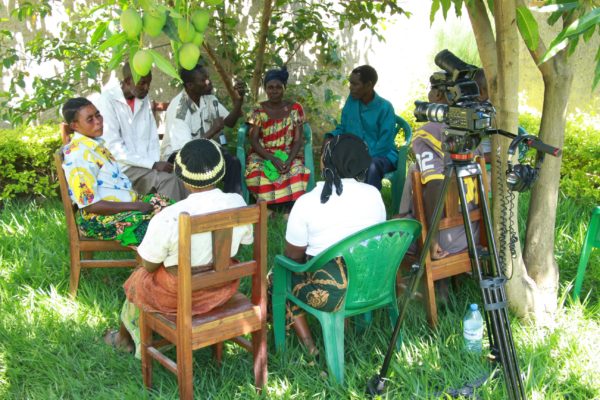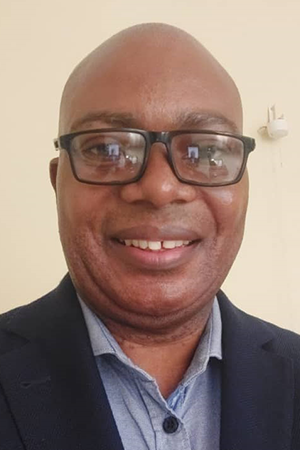Interpeace’s work in the Democratic Republic of Congo (DRC) has been incremental since 2013, when the organization launched a cross border dialogue programme to help rebuild trust and deconstruct identity-based stereotypes among frontier communities in the eastern DRC, Rwanda and Burundi.
More recently in 2018, Interpeace entered a consortium named Ensemble pour Beni (“Together for Beni”) with four other organizations, to work together in the Beni Territory of North Kivu province. Beni has experienced deadly violent conflicts perpetrated by different armed groups. Beni is also one of the epicentres of the 2018 Ebola outbreak in the DRC, and the intermittent violence has hampered efforts to contain the disease. The consortium brings together the International Organization for Migration (IOM), Interpeace, Search for Common Ground, World Vision, and the Christian Bilingual University of Congo (UCBC), with the support of the United Nations Organization Stabilization Mission in the DRC (MONUSCO). Ensemble pour Beni aims to engage the local communities and the authorities in a self-analysis around challenges, opportunities, and potential solutions for peace in the Beni Territory.
Additionally, in the Beni and Butembo Territories of North Kivu, Interpeace launched a new project to help restore trust between Ebola response workers and members of the community. Beni and Butembo have borne the brunt of the DRC’s ongoing Ebola epidemic, and response teams coordinated by the national authorities and the World Health Organization (WHO) have experienced mistrust from the local communities, undermining Ebola response efforts. The state of mistrust poses the risk of a spread of Ebola throughout the Great Lakes region and potentially onwards to other parts of the world. Interpeace undertook a participatory action research (PAR) effort to understand the underlying reasons for this mistrust and successfully gained the interest of the national government, which expressed interest in working more closely with Interpeace on the Ebola programme, particularly to strengthen trust between the population and the Ebola workers.
In the Kasai region, Interpeace has launched a programme to help restore trust between the national authorities and customary power. The conflict in Kasai is a contention between customary power and the authorities. This makes it considerably different from other conflicts in the DRC, many of which gravitate around the confluence of power, identity and resources. The Kasai programme was initiated following a resurgence of conflict between local militants and national security forces in 2016. The conflict has caused mass population movement in the region, driving tens of thousands across the border into Angola and leaving hundreds of thousands internally displaced. The Interpeace programme in Kasai seeks to facilitate dialogue and mediation for reconciliation, as well as social cohesion among the local communities, the authorities, and the security forces. The programme is of crucial importance because the conflict has posed a significant challenge to the authority of the state in Kasai, where customary power is treated as more legitimate than that of the national state.


